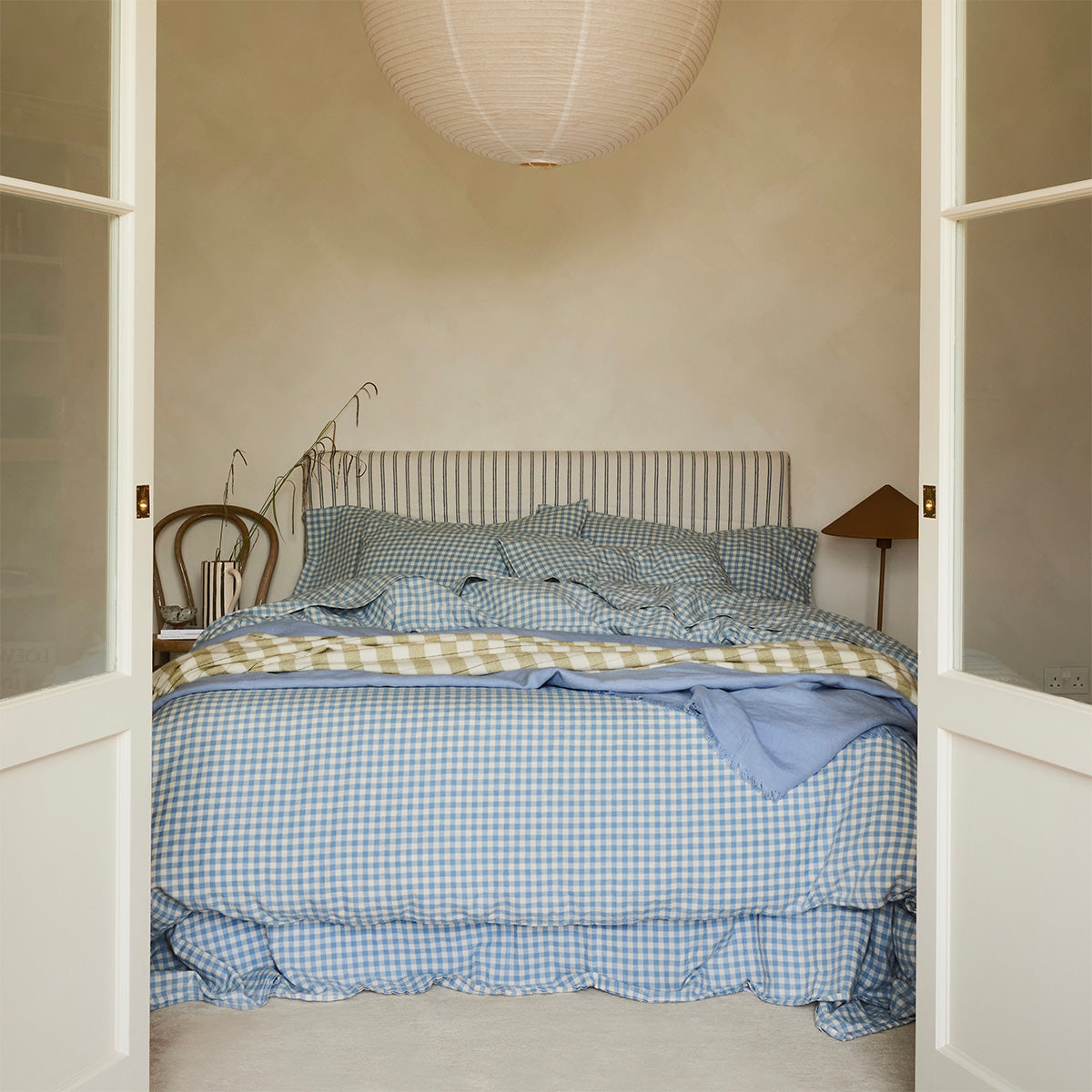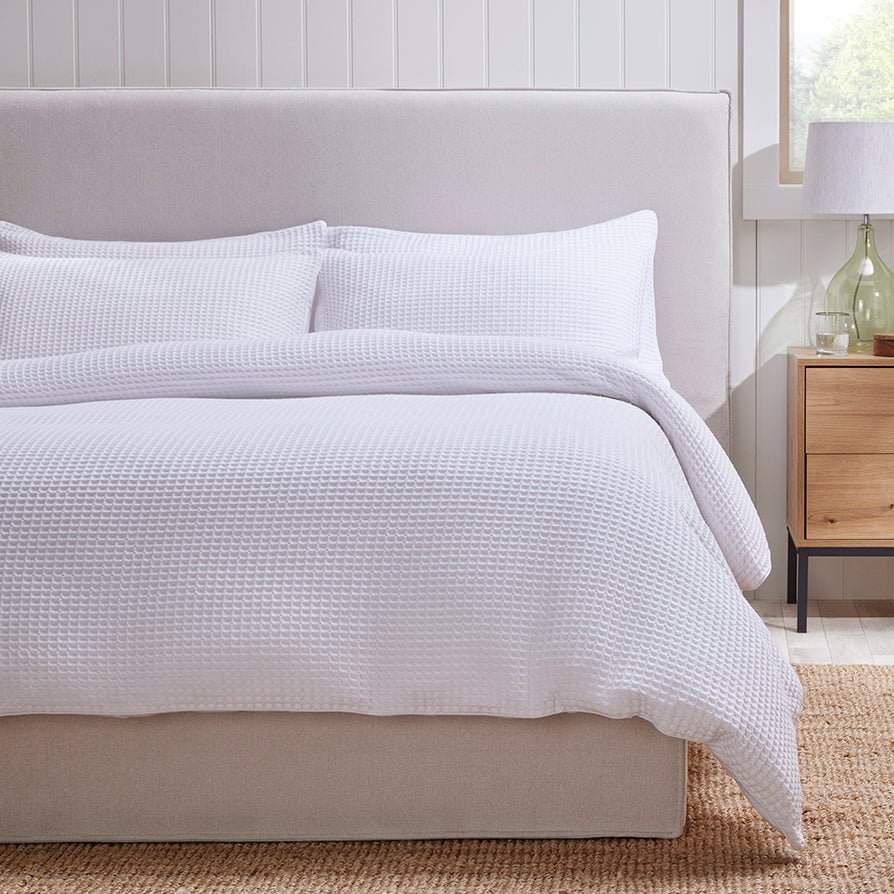Best duvet covers – the styles and brands that bedding experts recommend shopping
We've rounded up the best duvet covers for style and practicality
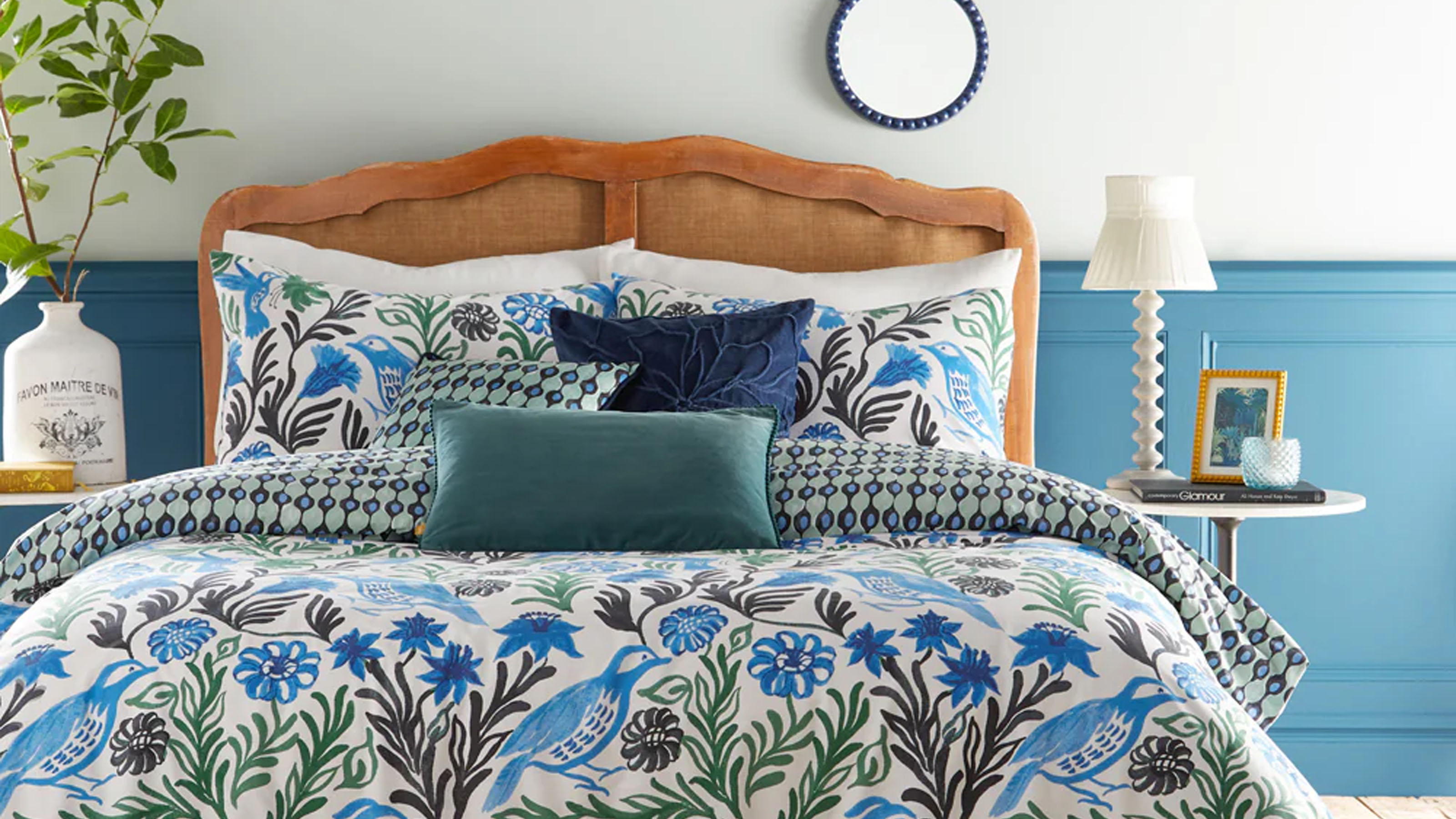

The best duvet covers can give your bedroom an instant uplift. A far easier bedroom update than painting the walls, the duvet cover set you choose can brighten up a room with bold colour, add personality to the bedroom via a fun print, or create a hotel-worthy boudoir with crisp white linens.
If you've invested in the best duvet for your sleep needs then choosing the right duvet cover can also be important for practical reasons. If you've opted for a duvet filled with breathable natural materials, then you don't want to add a synthetic polyester duvet cover on top. So material choice is also important.
Plus, a duvet cover should ideally be easy to wash and quick to dry so that it's easy to care for. As such, I've rounded up some of my top buys below, including a guide to the best brands to shop.
Best duvet covers
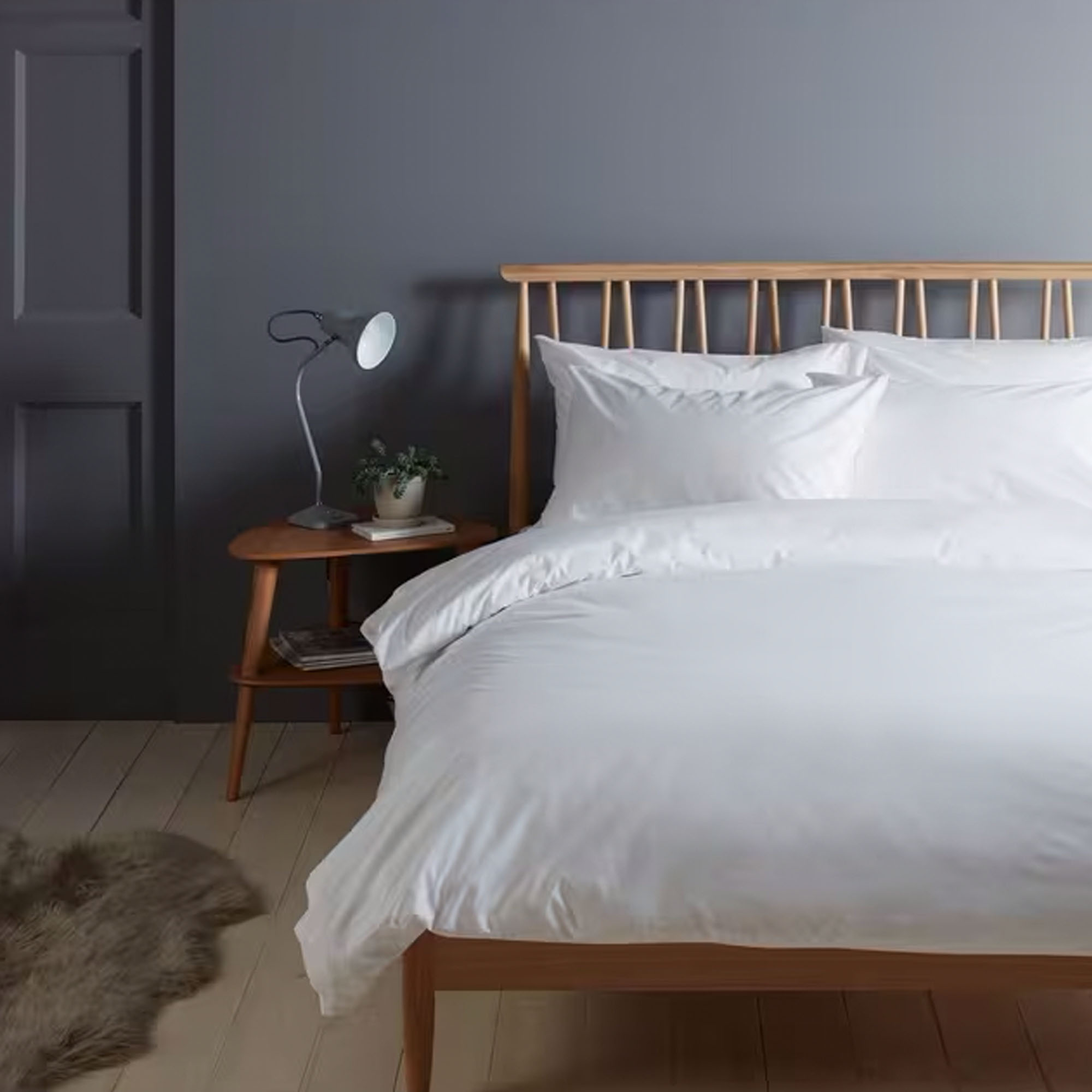
RRP: from £40
Sometimes classic is best. Like all of the John Lewis bed linen we've tested this Egyptian cotton duvet cover is practical and easy to care for. It's available in 17 colourways and can be washed at 40°C and tumble dried.
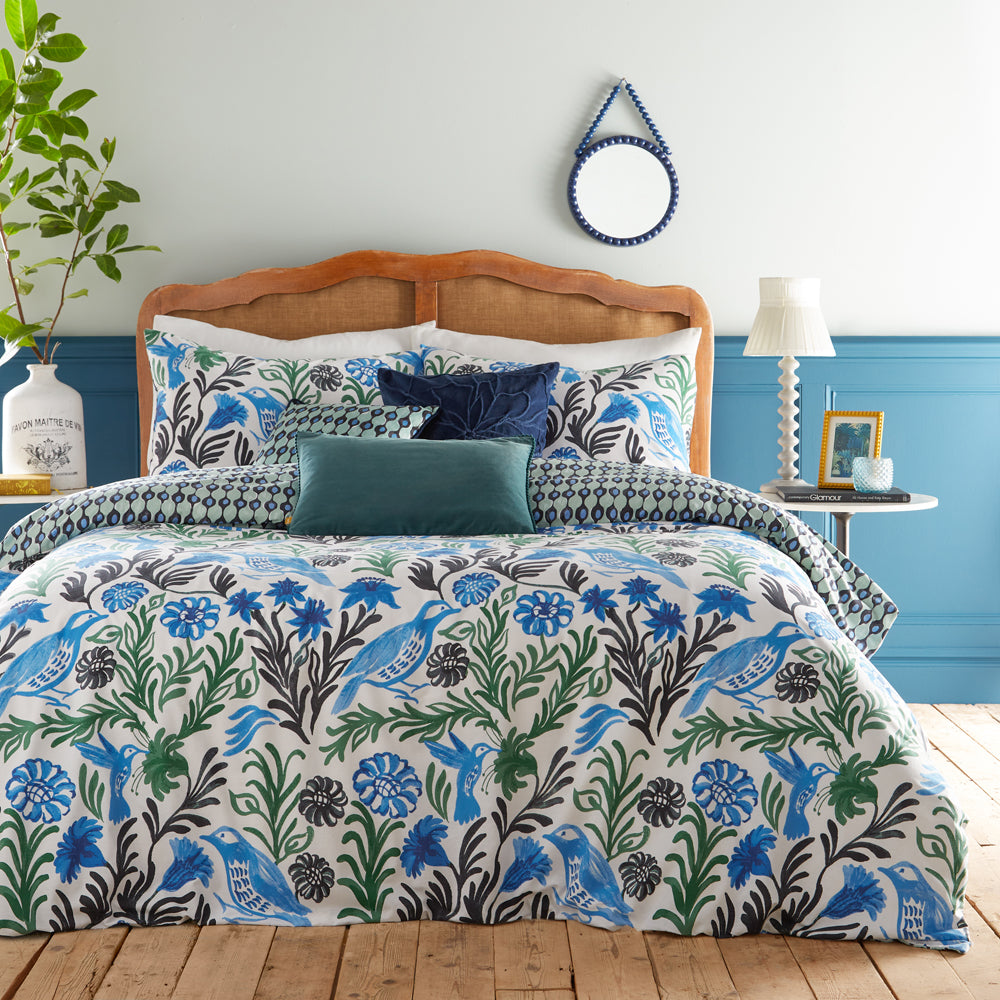
RRP: from £17
If you're looking for a duvet cover set that's fun, colourful, and affordable then furn. is one of my top recommendations. Its super vibrant bed linen will instantly transform a bedroom allowing you to stamp your personality onto your space.
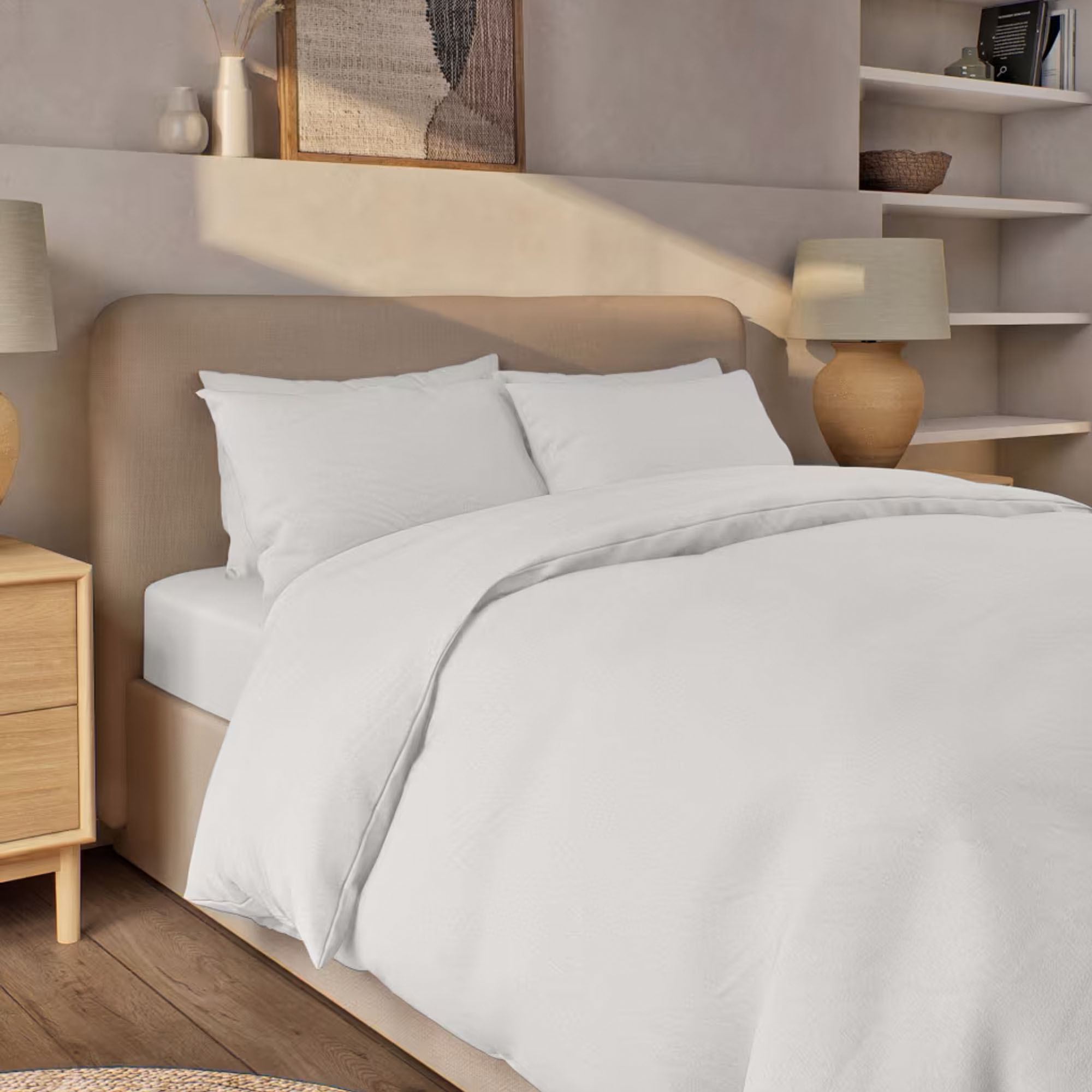
RRP: from £19.50
Opting for a brushed cotton duvet cover during the winter months will help to eliminate the chill-factor from cold sheets at bedtime. This M&S duvet set is available in 16 colour options, can be machine washed at 40°C and tumble dried on low.
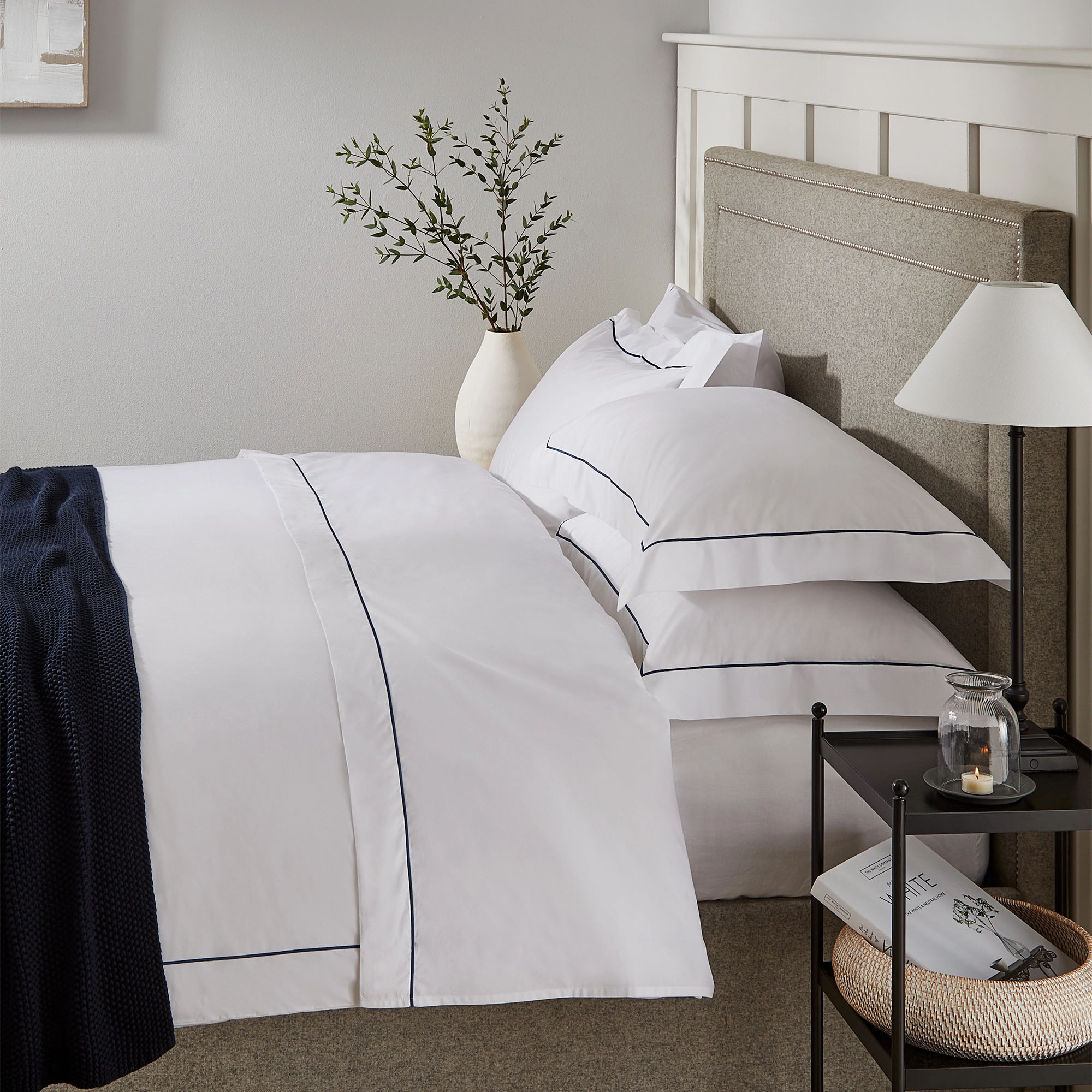
RRP: from £55
The White Company's duvet cover sets will transfrom your bedroom into a boutique hotel. Crisp white linens deliver a super smart look. However, you will just need to factor in ironing to keep this cotton bed linen crease-free and looking its best.
What is a good duvet cover brand?
If you're wondering where to stock up on bed linen our guide to where to buy bedding can help. But this is my cheatsheet of brands where you can source a decent duvet cover set whether you're looking for an affordable bedroom update or you want to invest in a luxury bedding set.
Affordable: £-££
- Argos: budget basics and colourful Habitat duvet covers
- Dunelm: affordable bedding sets and duvet covers
- DUSK: luxury bed linen at low prices
- furn.: fun prints and Christmas bed linen
- H&M: on-trend and affordable bed linen
Luxury: ££-£££
- Christy: good quality bed linen
- John Lewis: good quality easy to care for bed linen
- La Redoute: wide range of colourful duvet sets
- M&S: wide range of quality bed linen
- Piglet in Bed: linen and cotton duvet covers
- Soak & Sleep: wide range of quality bedding sets
- The White Company: luxury white bed linen
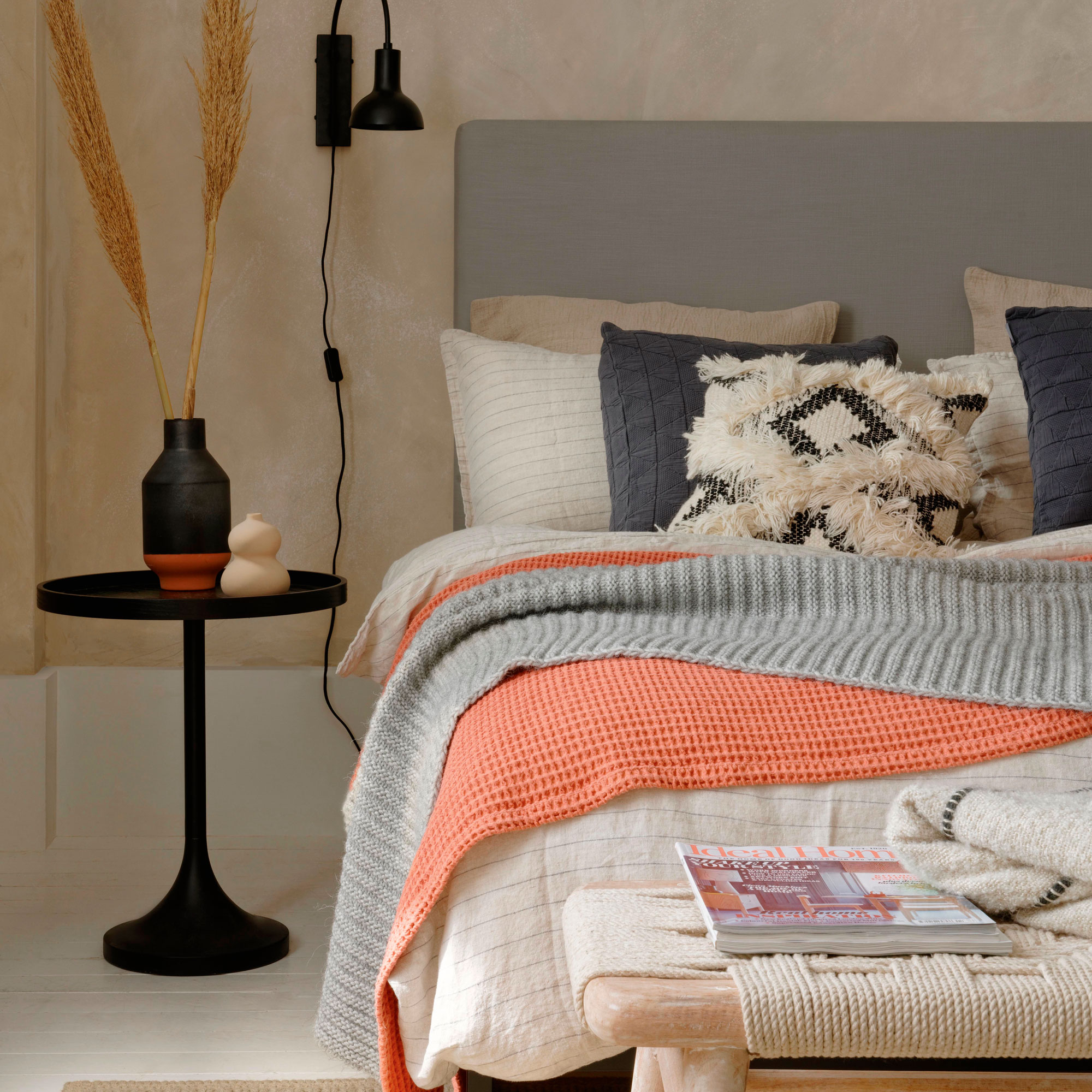
How to choose a duvet cover
Aside picking from prints, patterns and colours that go with your bedroom aesthetic, choosing a duvet cover can be dictated by a few other factors. These include considering material, ease of care, and of course, price.
Materials
First up, fabric choice. 'It’s important to note that there is no single bedding material better than others' explains Suzi Samaddar, styling expert at bedding brand furn. 'What may work perfectly for one person might not be right for another, it really depends on a number of factors. Your skin type, general body and bedroom temperature, and how much you sweat will all play a part in what bedding fabric you should choose'.
The three most popular duvet cover materials are cotton, linen, or a polyester or polycotton blend. Each fabric has its own pros and cons which our bedding experts explain below.
Cotton: 'If popularity is anything to go by, then cotton is definitely in the running for the top spot, says Suzi. 'It’s used far and wide, from homes to luxury hotel bedrooms aiming to provide a five-star sleep experience. The benefits of cotton bedding are plentiful, from its breathability and moisture-wicking properties to its splendid softness and impressive durability'.
'Percale sheets are light and crisp, while sateen sheets are glossy, smooth, and luxurious. But if you're looking for an even more indulgent sleeping experience, I would suggest upgrading to Egyptian cotton for a truly luxurious sleep'.
Linen: 'Known as one of the finest bedding fabrics there is, linen is celebrated for its lifelong durability, serene softness, and ability to regulate your body temperature year-round' says Suzi.
'Linen is one of the toughest natural fabrics and only improves with age, becoming softer with each wash, agrees Rhiannon Masters, head of brand at bedding retailer Piglet in Bed. 'Well-maintained linen sheets can last decades, outliving synthetic alternatives'.
Polyester or polycotton: Synthetic duvet covers tend to be made from polyester or 'polycotton' a blend of polyester and cotton. A synthetic duvet cover tends to be the most affordable option, plus polyester bedding is easy to care for as you can usually stick it in the washing machine at a high temperature, it dries quickly and requires little ironing. However, polyester is far less breathable than natural materials and could cause you to overheat. 'Natural fibres are far more durable than synthetics, lasting much longer when cared for properly' adds Rhiannon.
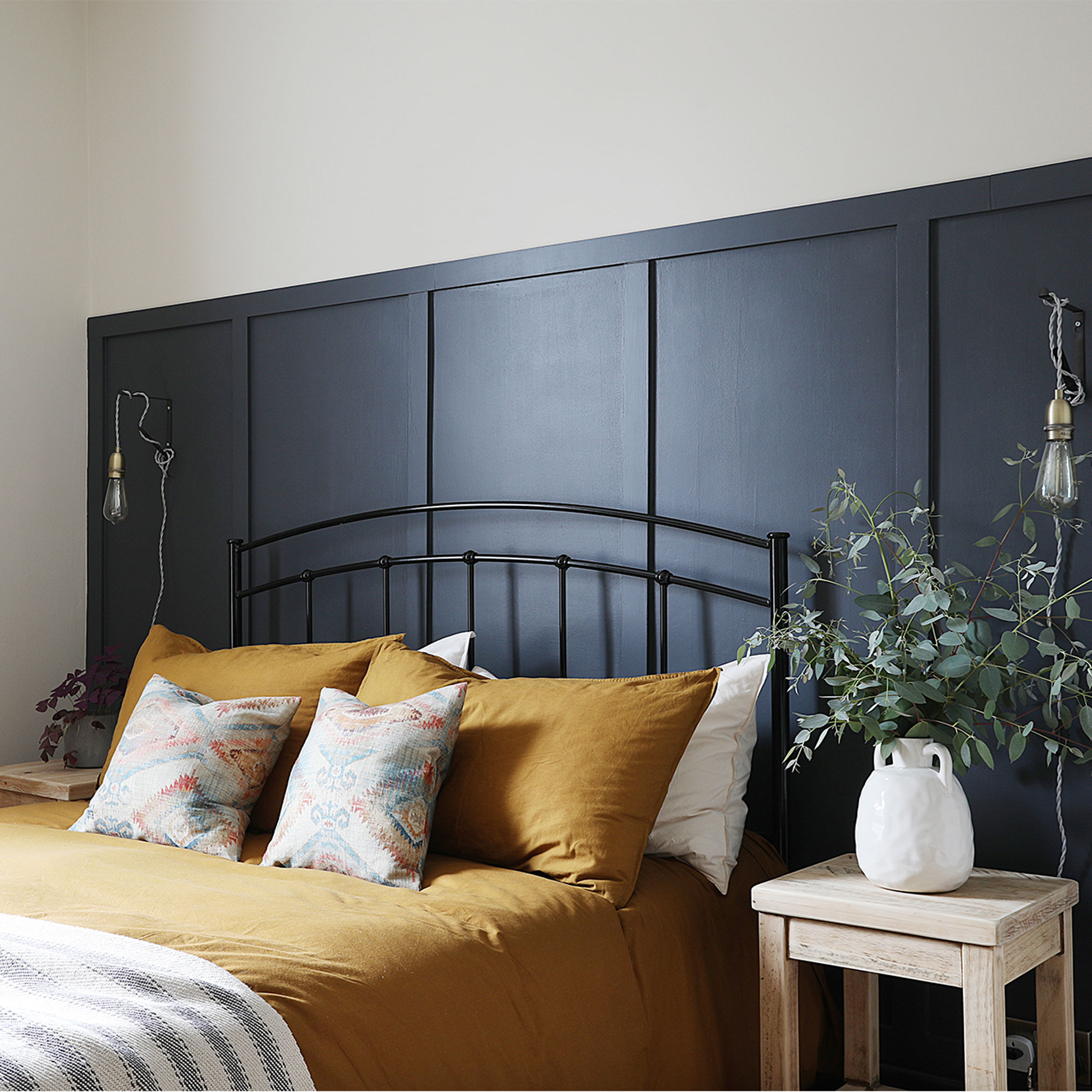
Ease of care
Make sure to check the details to find out how easy your new bedding will be to wash before you buy. The fortnightly change of the sheets is a task in itself, so having to wash them shouldn't be an ordeal either.
Most duvet covers can be machine washed and tumble dried, but it's well worth checking the care instructions to make sure. You don't want to be swayed by a duvet covers good looks only to find out it's dry clean only when it's on the bed.
Price
What's your budget? If you're hoping to select a bedding set for under £50, there are some great affordable options to choose from. There are also premium picks at premium prices, if you can and are willing to spend. Generally, the more expensive the bedding the longer it'll last, but that's not to say you can't find some great deals in sales.
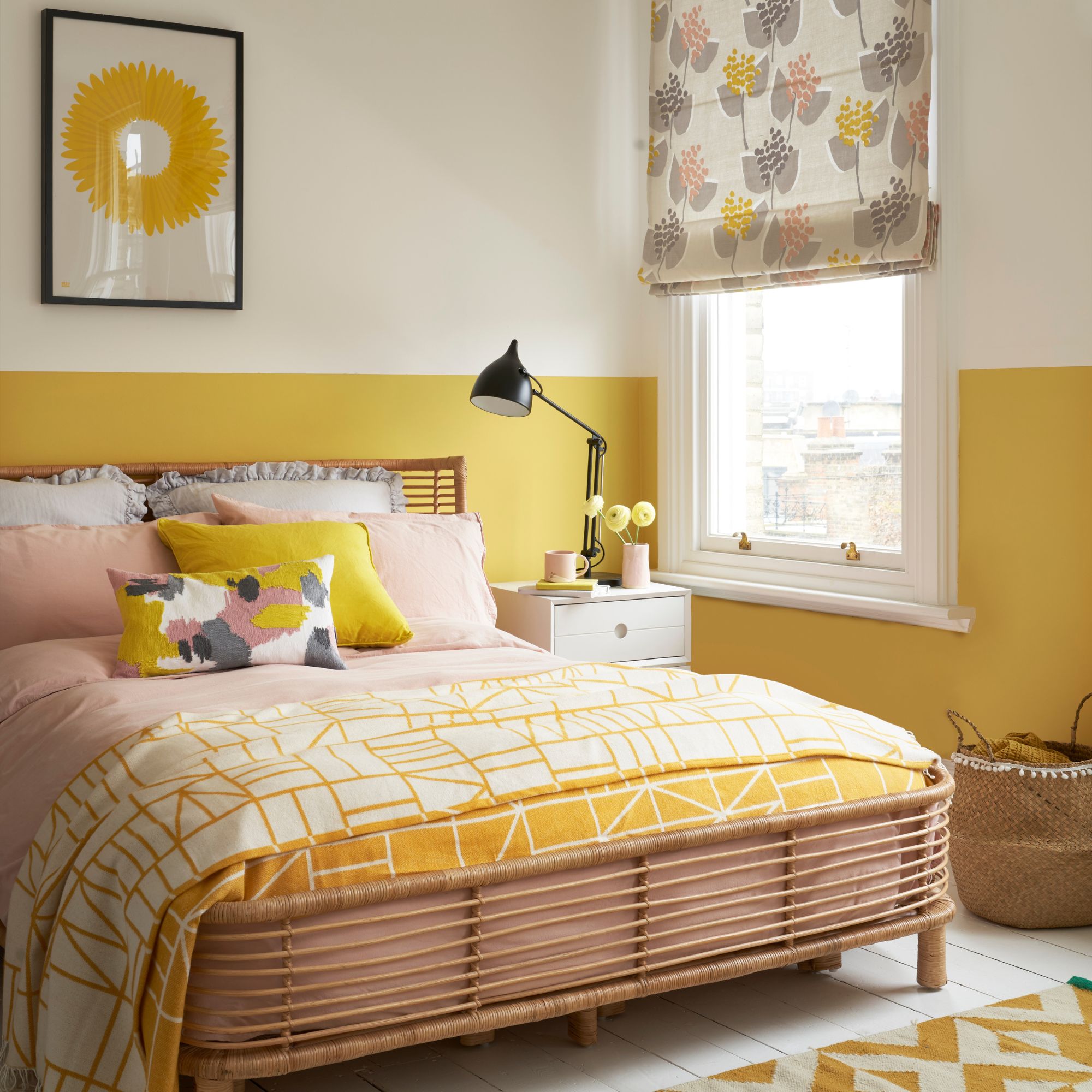
FAQs
How much bigger should a duvet cover be than a duvet?
Whilst I'd generally recommend you size up your duvet compared to your mattress, I'd say that your duvet cover should always be the same size as your duvet. That means that a single duvet needs a single duvet cover, a double duvet a double duvet cover, and so on.
What fabric should a duvet cover be?
Ultimately the choice of fabric for your duvet cover comes down to personal preference. Synthetic duvet covers, like polycotton or polyester, are generally the most budget-friendly and the easiest to care for as they wash and dry quickly, but they can cause overheating' lack durability, and aren't the best for the environment.
Natural fibres, such as cotton and linen, tend to be more expensive, but they offer better breathability and a more premium feel.
'Linen looks luxuriously scrunchy, naturally wrinkled and gets softer with every wash – while cotton is a classic, well-rounded fabric that gives you plenty of choice in terms of finish' shares Suzi from furn.
Is 100% cotton good for a duvet cover?
Is cotton a good option for a duvet cover? 'Absolutely' says Rhiannon of Piglet in Bed. 'Natural materials like 100% cotton and linen are soft, hypoallergenic, and antibacterial, offering superior comfort compared to synthetic fabrics. They also regulate temperature, keeping you warm in winter and cool in summer—perfect for year-round use and better sleep quality'.
'100% cotton is a perfect option for a duvet cover' agrees Ruth Welton from bedding retailer Soak & Sleep. 'It's smooth, soft and breathable qualities make this fibre a luxurious addition to any bedroom'.
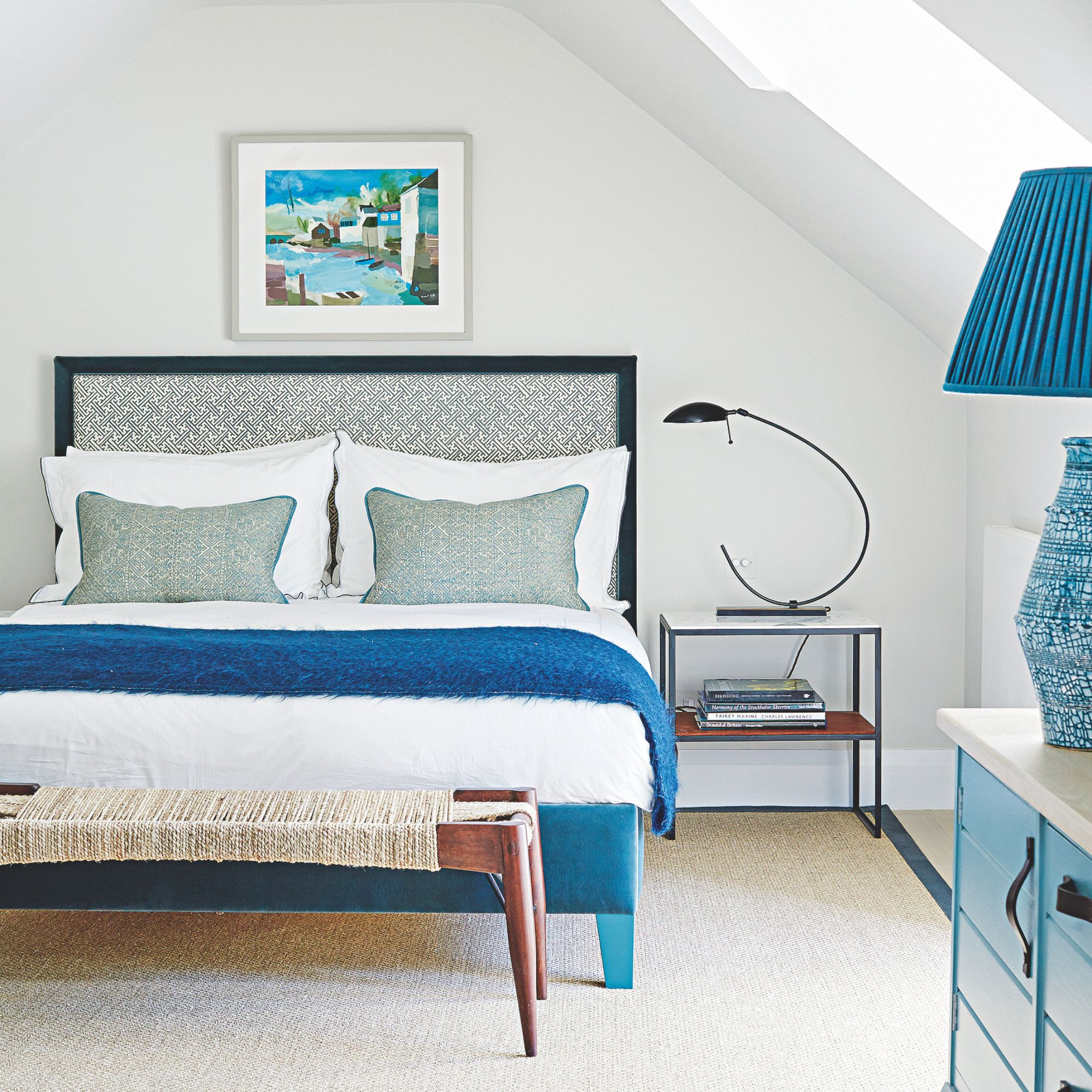
What thread count is best for a duvet cover?
'It all depends on the material when it comes to thread count' says Rhiannon of Piglet in Bed. 'For instance, different variations of 100% cotton can feel quite different. Egyptian cotton is super smooth and luxurious, usually ranging between 300-400 thread count. Percale cotton, on the other hand, has a crisp feel and typically comes in around 180-200 thread count. Seersucker cotton is breathable with a puckered texture, usually around 200 thread count'.
'When it comes to linen, it’s a bit different. Thread count isn’t the best way to measure quality because linen has a looser weave that makes it so breathable. So, you can’t really judge linen by thread count alone'.
What duvet covers don’t need ironing?
'If ironing duvet covers isn't at the top of your to-do list, it's best to look for a lower thread count or a polycotton mix bedding' shares Ruth. 'Or for bedding that looks beautifully textured and stylish when left un-ironed, opt for a relaxed French linen'.
'For a low-maintenance, high-quality option, choose linen, which has a naturally crumpled texture worth embracing' agrees Rhiannon. 'Or brushed cotton duvet covers don’t require ironing due to their unique weave. Tumble dry on low or give it a good flick as you take it out of the washing machine to air dry to help reduce creases'.
Get the Ideal Home Newsletter
Sign up to our newsletter for style and decor inspiration, house makeovers, project advice and more.

Amy is Ideal Home’s Sleep Editor and the Ideal Home Certified Expert on Sleep. She's spent the last four years researching and writing about what makes for the best night’s sleep during the day and testing out sleep products to find the best-in-class by night. So far she’s clocked up over 10,000 hours of pillow, duvet, and mattress testing experience.
Our go-to for all things sleep-related, she’s slept on and under bestselling products from Simba, Emma, Hypnos, Tempur, Silentnight, Panda, and many many more.
As a hot sleeper, Amy is always on the lookout for the most breathable bedding, but she also leads a wider team of testers to ensure our product testing encompasses both hot sleepers, cold sleepers, front sleepers, back sleepers, side sleepers, and everything in-between.
-
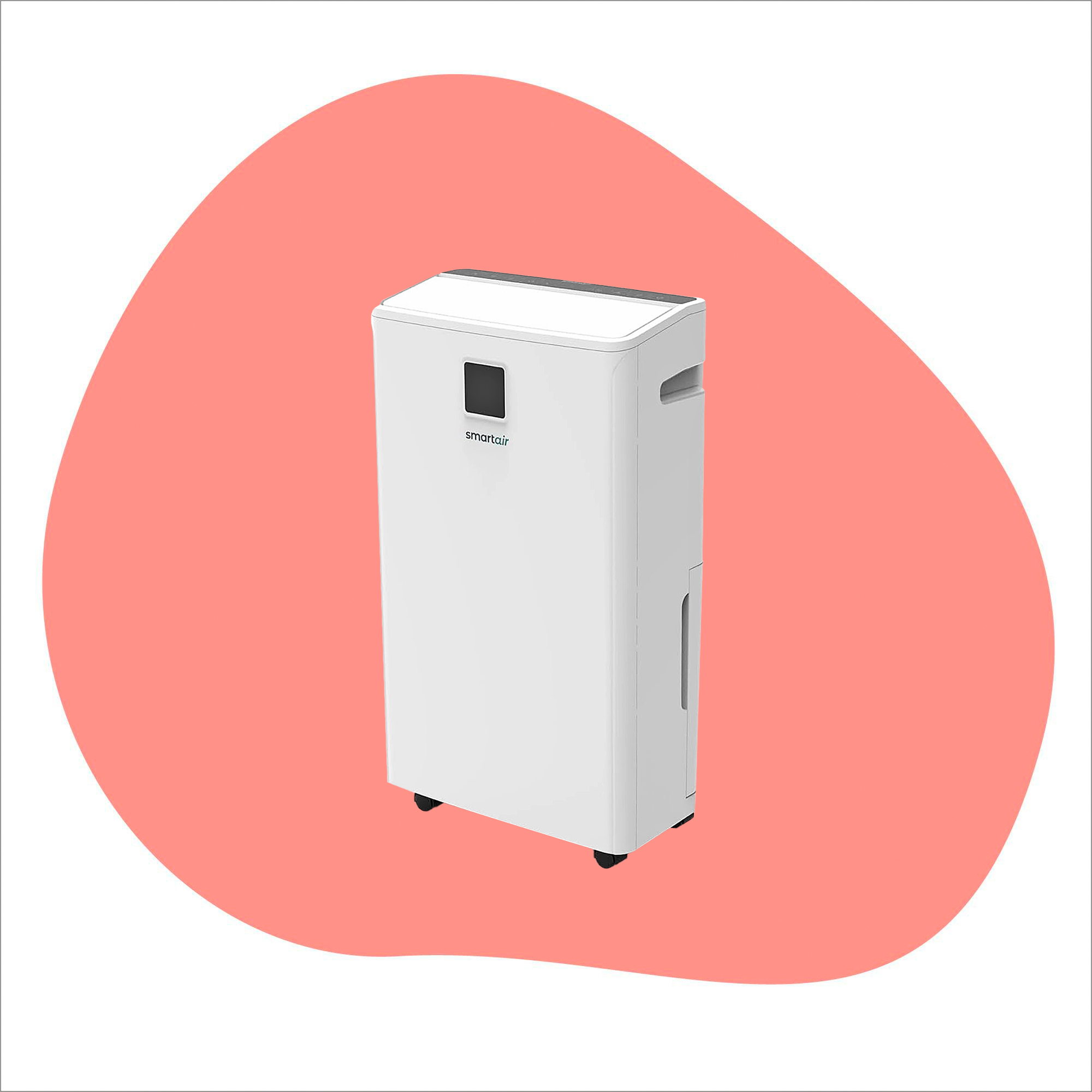 I tried out this neat little dehumidifier for a month – it dried my laundry in half the time
I tried out this neat little dehumidifier for a month – it dried my laundry in half the timeThe 20L SmartAir Dry Zone dehumidifier tackled my laundry drying woes head on
By Jenny McFarlane
-
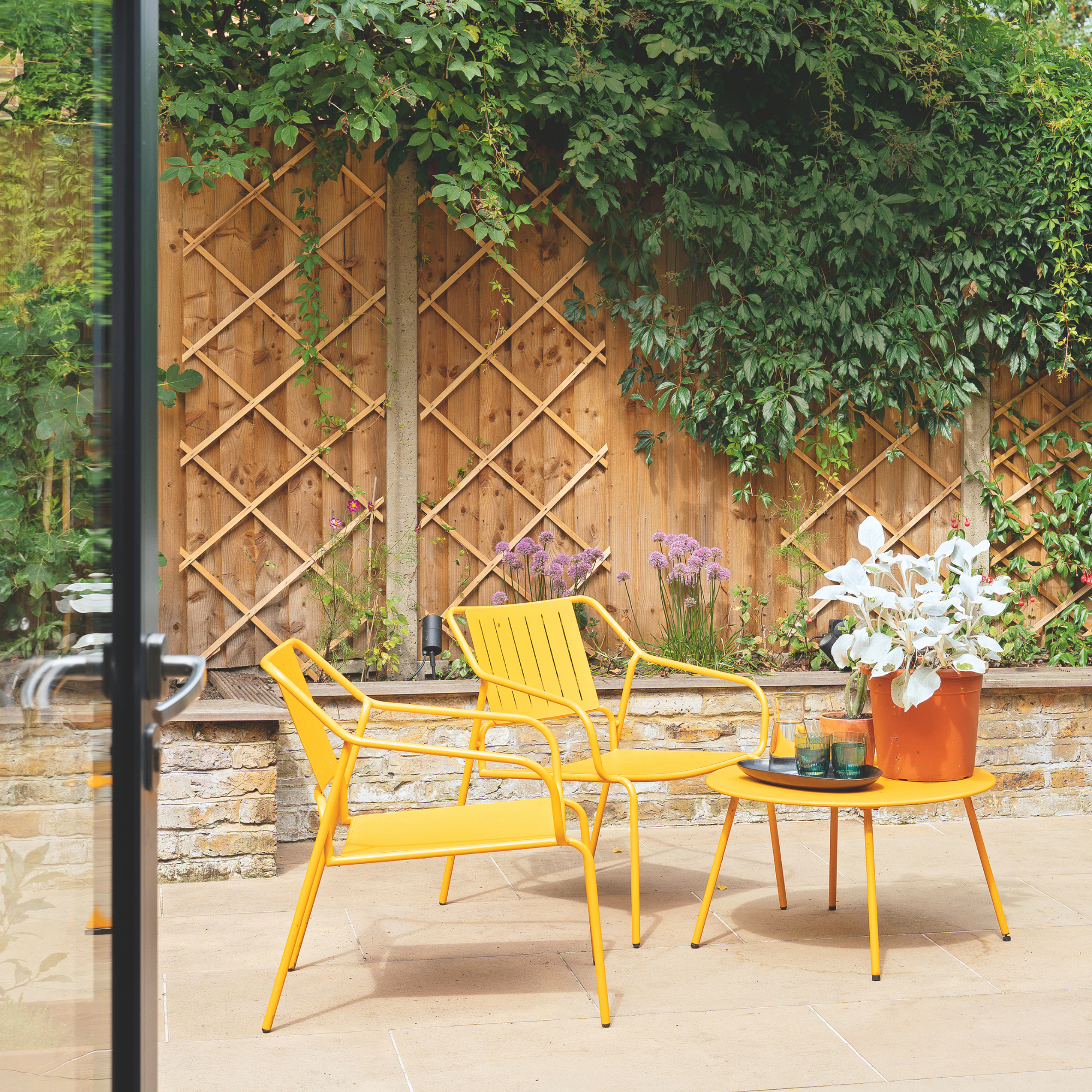 I’m seeing pastel garden furniture at all my favourite brands this spring, but QVC’s sorbet collection impressed me the most
I’m seeing pastel garden furniture at all my favourite brands this spring, but QVC’s sorbet collection impressed me the mostFresh pastel shades are a great way to liven up your outdoor space
By Kezia Reynolds
-
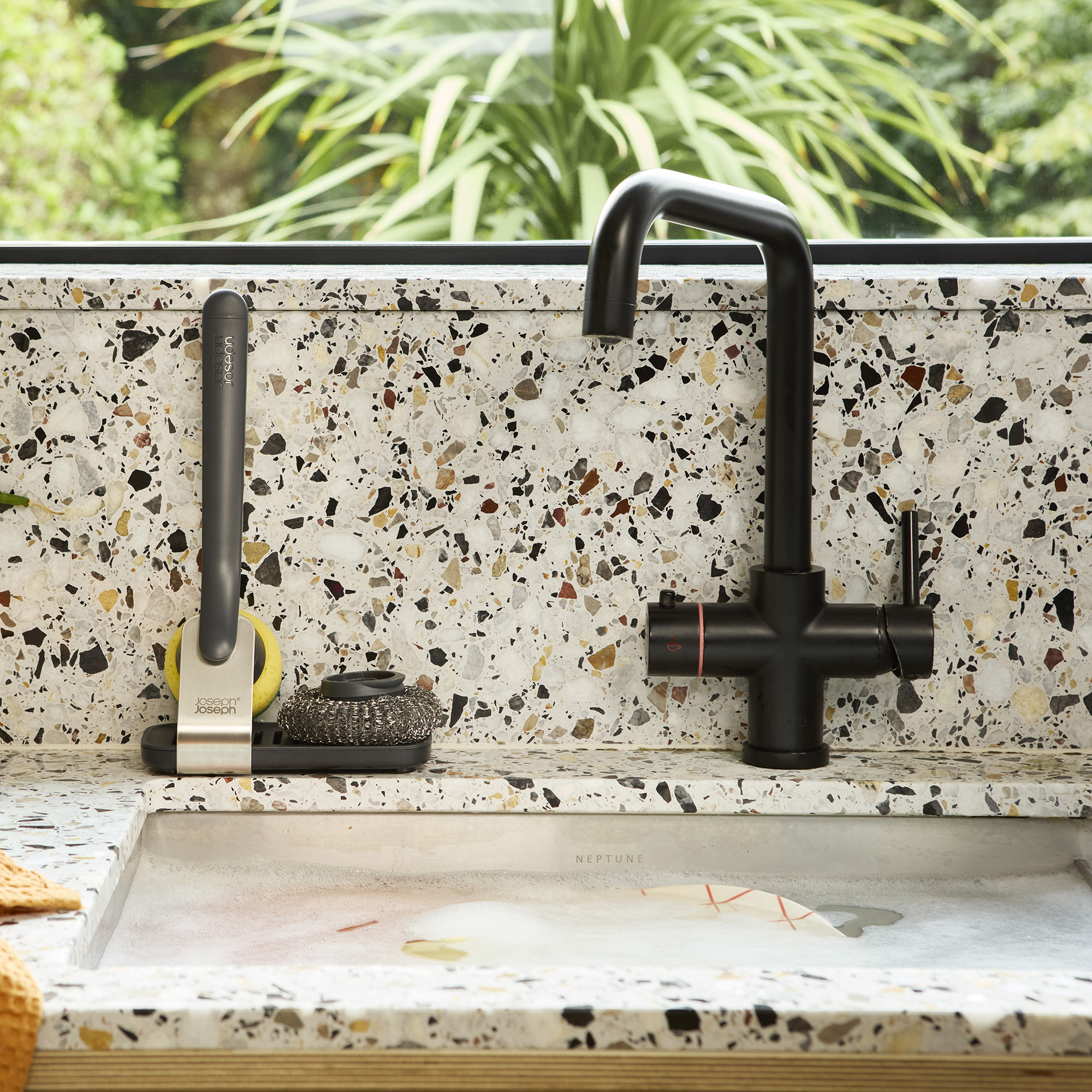 Don't tell my flatmates, but Joseph Joseph's clever new sink range finally made me enjoy washing up
Don't tell my flatmates, but Joseph Joseph's clever new sink range finally made me enjoy washing upI didn't know stylish washing up accessories existed until I saw this collection
By Holly Cockburn
